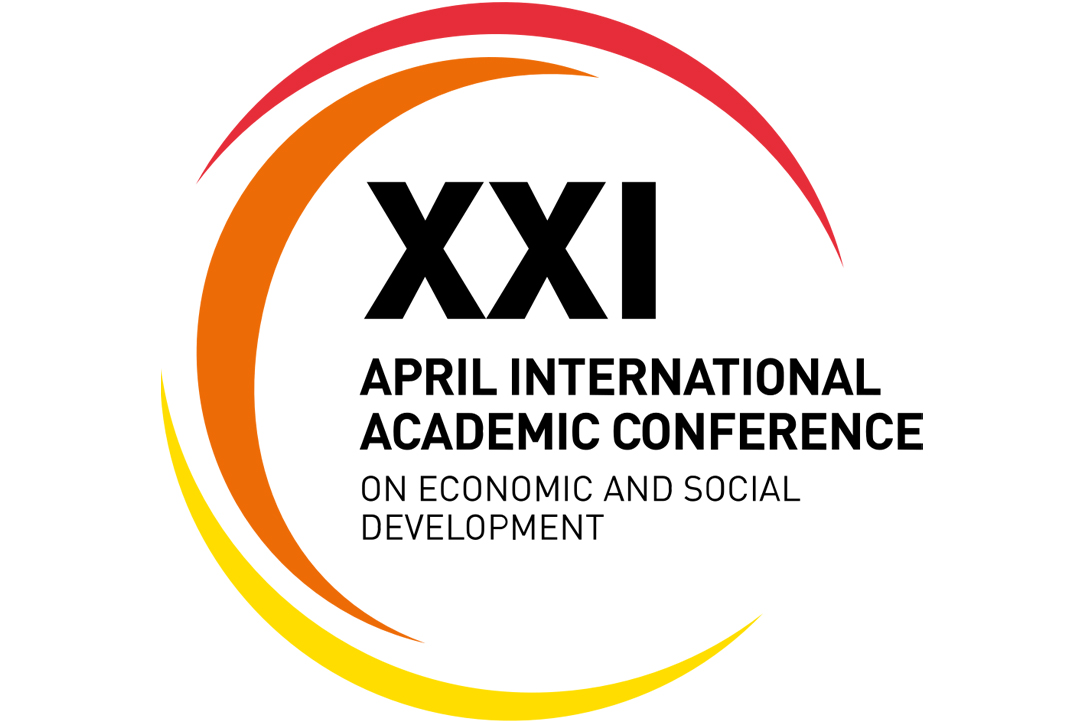HSE Report on Innovative Development in Russian Agriculture

The world’s modern food systems are going through a fundamentally new stage of technological development known as Agriculture 4.0. This digital approach relies on the use of robotechnics, the Internet of Things, biotechnologies, and other smart solutions. Is Russian agriculture ready for this transformation? What should be the government’s role in this process? These issues are the focus of the report, ‘Innovative Development of Russian Agricultural Industry. Agriculture 4.0».
The report has been prepared by the HSE Institute of Agrarian Studies in cooperation with the National Association of Technology Transfer and the Skolkovo Foundation for HSE University’s April Conference on Economic and Social Development. The report discusses the key challenges and promising areas for the development of Russian agriculture, including preconditions, growth factors, and obstacles on the way to its competitiveness worldwide. On top of traditionally applied statistics, the report also deals with projections of people working in agriculture.
The final part of the report includes recommendations on how to make state support of the agricultural industry more efficient. Among these recommendations are modernizing the institutional environment, developing the transfer support system, upgrading the agricultural education system, improving coordination among federal executive authorities, etc.
The report was presented online on April 29. The Russian food industry has recently made advances in terms of production and quality, which allows it to enter the global market. The growth of the industry is primarily attributed to investments and highly professional management. ‘However, today we should move on to a new development stage that would rely on innovation,’ said the conference moderator Eugenia Serova, Director for Agrarian Policy Issues at HSE, while opening the discussion.
In today’s world, agriculture is a highly innovative sector. It applies the most advanced technologies, including digital solutions, biotechnologies, new chemistry, and more. To gain a solid foothold in international markets, Russia must comply with the modern standards, Serova said. Therefore, the study aims to understand where leading Russian producers stand, what they believe to be the most important aspects of their development, and what the government authorities should do to support innovations in the agricultural sector.
The main speakers were Nadezhda Orlova, Head of Economic Innovations in Agriculture, Institute of Agrarian Studies, and Anna Khvorostyanaya, interim CEO of the National Association of Technology Transfer.
‘It is vital to further scientific development and introduce new innovative solutions (during the transition period) in order to increase Russia’s competitiveness and ensure further advances of the Russian agricultural industry,’ said Nadezhda Orlova. Otherwise, the gap between Russia and the world’s developed countries may grow substantially over the next decade, with Russia losing many of the agricultural markets worldwide.
Apart from technological developments, one of the drivers behind the transition to Agriculture 4.0 is the arrival of a new generation that holds new values and has new requirements of products.
People want to maintain a healthy lifestyle, they have entirely different views on economics, and they are willing to share various resources. They vote for sustainability and ethical behavior, and they no doubt prefer personal and customized goods and services, including food
Russia has a good starting position in agriculture, a favorable social and demographic situation, and enough biocapacity available. ‘Russia is rich in water and land resources compared to other countries,’ said the expert. At the same time, resources of the traditional growth model have almost been depleted, and we need to look for new areas of development. Russia also has to boost its global competitiveness by reducing its critical dependence on foreign technologies and capital goods, decreasing its high crop volatility, and narrowing its technological gap. Russian agriculture has yet to adopt the sustainable agriculture concept, as Russia has only recently focused on the issues of food loss and environmental pollution.

Although Russia is one of the leaders in the area of public financing in R&D and science, the quality of scientific outputs is incompatible with the amount of expenses. The technology transfer system appears to be inefficient.
‘The problem is not that we don’t have enough money. It is that the efficiency is low. Besides, we spend enormous sums on fundamental research, while agriculture needs to be looked at from a practical standpoint. Hardly any money goes to commercialization,' said Nadezhda Orlova.
Anna Khvorostyanaya presented the results of a survey conducted among people working in agriculture to find out their opinion about technology transfer issues. Those issues are due to lack of constructive dialogue between business, science, and federal executive authorities. Many of the respondents mentioned difficulties in interacting with universities, which refuse to act as high quality and reliable partners. This creates serious inconveniences for business. However, the expert believes that these issues can be successfully addressed by the interacting parties themselves. Anna Khvorostyanaya spoke about the tools that could facilitate the technology transfer.
Roman Kulikov from Skolkovo pointed out that one of the key issues seems to be poorly coordinated governmental policy and state support systems. ‘We don’t have an adequate consolidated agriculture development strategy at the national level,’ he said. ‘There weren’t as many state support programmes even a decade ago. Now, we have them available, but they are poorly synchronized among each other.’
‘As far as education and labour resources are concerned, it is a disaster. I think many of my colleague would agree with me that a possible solution could be to divide agricultural universities into high quality educational institutions that teach people how to work with innovative technology and a number of universities that create those technologies,’ he said. In Mr. Kulikov’s opinion, non-agricultural universities could make their own contribution to the technology transfer in agriculture.
The discussion was attended by Irina Donnik, Vice-President of the Russian Academy of Sciences, a representative of the Moscow office of the UN Food and Agriculture Organization (FAO), Vladimir Trukhachev, Rector of Timityasev Moscow Agricultural Academy, and other experts and representatives of major agricultural companies.
Click this link to watch the presentation.
Nadezhda Orlova
Head, Department for Economics of Innovation in Agriculture
Evgenia V. Serova
Director for Agricultural Policy
See also:
24 Countries Represented at 25th Yasin International Academic Conference Held by HSE University
The Programme Committee of the 25th Yasin (April) International Academic Conference on Economic and Social Development has summed up the initial results. In 2025, 1,384 people from 24 countries and 29 Russian regions participated in the conference, with 335 of them delivering presentations.
Stuck in the Net: How Much Time Children Spend Online
On average, a schoolchild spends 48 hours a week on studies—equivalent to a six-day working week for an adult. This was highlighted by experts at the round table ‘Domains of Children’s Well-Being Evaluation for Human Potential and Evidence-Based Social Policy Development,’ held as part of the 25th Yasin (April) International Academic Conference.
Russian and Chinese Scholars Share Experience of Transformation of Doctoral Education
The Russian and Chinese postgraduate education systems originally borrowed their institutional frameworks from the Soviet Union. However, in the 21st century, they have evolved along different paths. While key performance indicators for postgraduate programmes in Russia are declining, China is seeing a rapid increase in the number of postgraduate students. These contrasting trajectories and the reforms undertaken in each country in recent decades were the focus of a roundtable discussion held as part of the 25th Yasin (April) International Academic Conference.
Nobel Laureate Proposes Solution to Markov Equilibrium Problem
In dynamic games, a Markov equilibrium involves strategies that guide players' behaviour based on the current state of the game, rather than its entire history. This approach is effective when players have access to complete information. But when uncertainty arises in the game—for instance, when players are unsure of who they are dealing with—this approach can become problematic. Eric Maskin, Nobel Laureate in Economics and Professor at Harvard University, addressed this issue in a paper presented at the XXV Yasin (April) International Academic Conference on Economic and Social Development held at HSE University from April 15 to 18, 2025.
‘The World Is Becoming More Complex and Less Predictable’: What Scientists Say about the Future
The future is now more difficult for researchers to forecast, and events that are hard to predict are playing an increasingly significant role. But there is good news too: scientists are confident that humanity will adapt to any changes. This was the focus of discussion at the International Symposium ‘Foresight in a Rapidly Changing World,’ which took place as part of the 25th Yasin (April) International Academic Conference.
Fragmentation and Bloc Formation: How the Global Economy is Changing
Sergey Dubinin, former head of the Bank of Russia and Professor of Finance and Credit at the Faculty of Economics at Moscow State University, has delivered an honorary address at the XXV Yasin (April) International Academic Conference. He spoke about the transformation of the global monetary and financial system, as well as the Russian economy.
More Children, More Happiness: HSE Experts Study Impact of Number of Children on Russians' Assessment of Happiness
Russians with children feel happier than those without children. At the same time, the number of children influences the assessment of happiness: the more children Russians have, the happier they feel. These conclusions were outlined inthe report ‘More Children, More Happiness: The Impact of the Number of Children on Russians’ Assessment of Happiness,’ presented at the XXV Yasin (April) International Academic Conference on Economic and Social Development, held on April 15–18 at HSE University. The study was conducted by Elena Churilova, Senior Research Fellow, and Dmitry Jdanov, Chief Research Fellowat HSE International Laboratory for Population and Health.
HSE Expands Cooperation with Gulf Countries
HSE University and the Centre for International Policy Research (Qatar) have agreed to collaborate in the field of social sciences, with plans for joint research, academic exchanges, and regular expert engagement. The agreement was signed during the roundtable ‘State Capacity and State Resilience in the Global South,’ held as part of the 25th Yasin (April) International Academic Conference at HSE University.
‘We Grow Old before We Become Rich’: How BRICS Countries Can Achieve Economic Growth
Due to population aging, many countries aiming for economic prosperity have limited time left to undergo economic transformation, according to the honorary report Narratives Versus Reality on Employment and Demography: How Undermining Institutions Can Push Countries Out of the ‘Narrow Corridor’ by Santosh Mehrotra of the University of Bath. The report was presented at the XXV Yasin (April) International Academic Conference.
XXV Yasin (April) Academic Conference Kicks Off at HSE University
The anniversary 25th Yasin (April) International Academic Conference on Economic and Social Development will take place from April 15 to 18. This year, over a thousand applications were submitted to present at the conference, of which the Programme Committee selected 381 of the best research papers in their respective fields.


